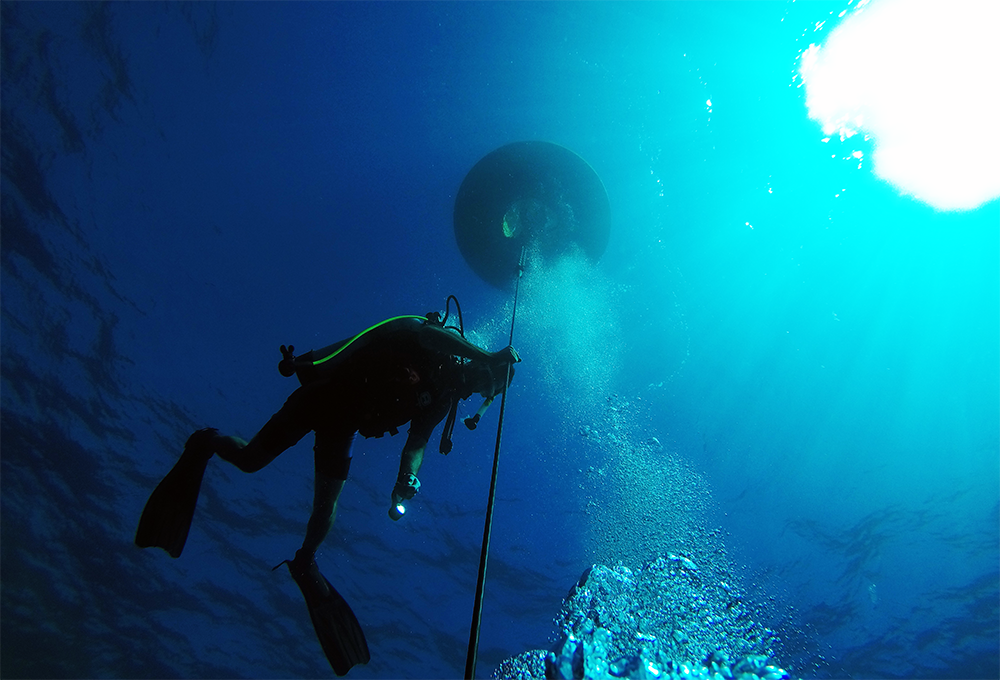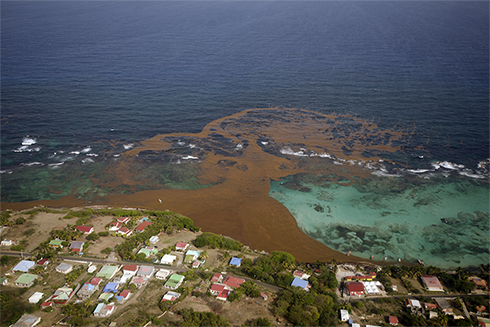News
News Articles
Viewing items with Category: All Categories, Year: All Years

‘The Rising Tides Podcast’ explores cutting-edge ocean technologies in marine science
Designed for ocean experts and general audiences alike, “The Rising Tides Podcast” invites oceanographers to discuss their ground-breaking research through one-on-one conversations.
April 2, 2025News

New Sargassum system takes aim at a troublesome seaweed
Resource managers in South Florida have a new tool in their fight against Sargassum thanks to a five-year, $3.2-million grant from the National Oceanic and Atmospheric Administration (NOAA) Monitoring and Event Response for Harmful Algal Blooms program.
March 28, 2025News

Viruses identified in red tide blooms for the first time
In one of the first studies of its kind, researchers used viral metagenomics to identify several viruses — including one new viral species — present in blooms of K. brevis, more commonly known as red tide.
March 20, 2025News

Researchers identify ‘tipping point’ that caused Sargassum inundations in the Caribbean
The Great Atlantic Sargassum Belt has puzzled researchers since 2011. A new model demonstrates that the alga was brought to the tropics by strong currents, and thrived in ideal growing conditions.
March 13, 2025News

USF and partners launch innovative accelerator program to grow the marine economy
The Continuum, a blue-tech accelerator program, is designed to promote the commercialization of blue-tech solutions, drive advancements in ocean resilience, reduce negative environmental impacts, and stimulate economic growth for the country’s marine economy.
December 10, 2024News, Resiliency News

Deep-sea discovery shines light on life in the twilight zone
A GEOTRACES expedition in the Pacific Ocean revealed low levels of iron in the ocean’s twilight zone. A paper detailing the unexpected findings was published this week in Nature.
September 19, 2024News

An “invasive” marine organism has become an economic resource in the eastern Mediterranean
A recent paper on foraminifera in the eastern Mediterranean offers a unique perspective on the complex interactions between humans and marine environments.
September 12, 2024News

Research shines at the Fall 2024 CMS Faculty Seminar Series
An annual tradition, the faculty seminar kicks off the Fall semester and is a chance for faculty members to present their latest research to the College.
September 9, 2024Blogs and Perspectives, News

Estuaries in South Florida are warming faster than the Gulf of Mexico and global ocean
Using satellite data, CMS researchers found that sea surface temperatures in four estuaries in South Florida have risen faster than sea surface temperatures globally and in the Gulf of Mexico.
August 6, 2024News

USF-trained shipwreck hunter makes another major discovery
Using a technique known as side-scan sonar, a team led by David Mearns and The Royal Canadian Geographical Society found Shackleton’s last ship off the coast of Newfoundland, Canada.
June 17, 2024News

How GEOTRACES helped unlock secrets of marine trace elements
GEOTRACES has been an international effort to better understand the role of marine trace elements and determine their distributions in the ocean.
June 12, 2024News, Publication Highlights

The Ocean Circulation Lab braces for a busy hurricane season
The Ocean Circulation Lab maintains a pair of high-resolution circulation models that can be used to forecast water levels days before hurricane landfall.
June 5, 2024Florida Flood Hub, News